July 27, 2020 - Sometimes a single word can say so much. One such word is "Monticola".
Monticola is a genus of birds, of which there are two species in Montenegro. Monticola is also a Latin word for mountaineer, a man of hills and mountains.
The word "monticola", chosen by the well-established Centre for the Protection and Study of Birds (CZIP), was therefore the obvious choice for the name of the agency to promote Montenegro as a future bird-watching destination.
The Monticola Agency was recently registered with its own website (monticola.me), offers and packages made available, and future guides passed all the necessary training and received licenses. Yet, the coronavirus epidemic put a stop to plans.
Or rather, hit the pause button.
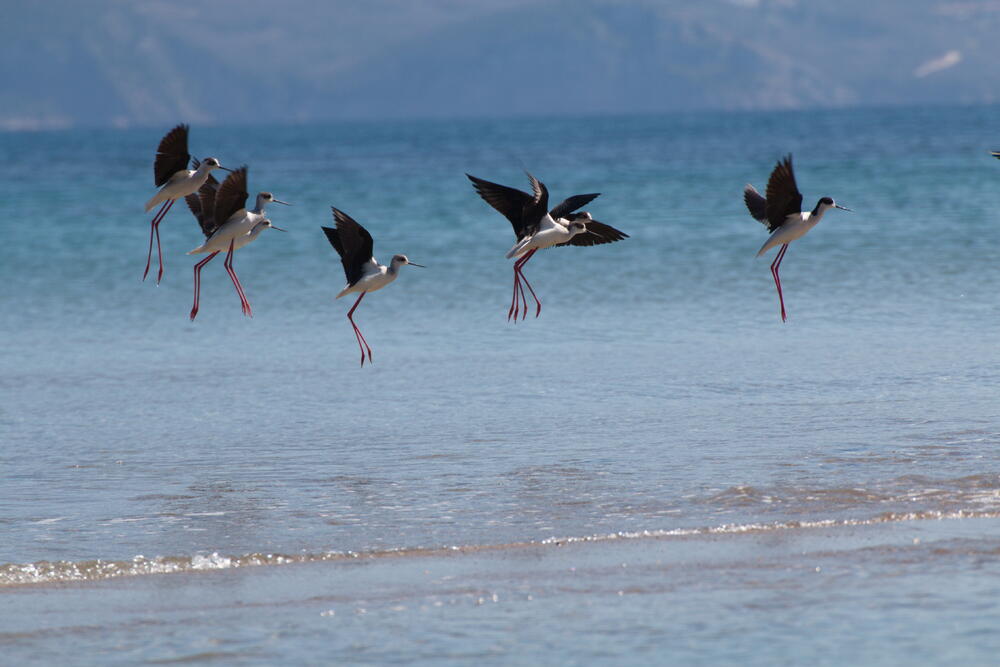
Black-Winged Stilt Photo: Marija Šoškić
“From the outset we wanted to use a bird species in the name. Monticola is a genus of birds of which there are two species - Monticola saxatilis, common rock thrush, and Monticola solitarius - blue rock thrush. One complements the other and together they cover most of Montenegro, and yet they are not so common and easy to see. Their secrecy best describes Montenegro, a country with hidden corners waiting to be discovered. "Monticola" is a Latin word meaning mountaineer, a man of hills and mountains, an epithet that best describes the inhabitants of our country," say Ivan Bakić and Bojan Zeković.
One of the fastest-growing branches of tourism
Bakić is also the Executive Director of the Monticola Agency, and Zeković, who is a long-standing ornithologist with the CZIP, and a licenced a tourist guide, will in future be taking enthusiasts on tours and bird-watching outings.
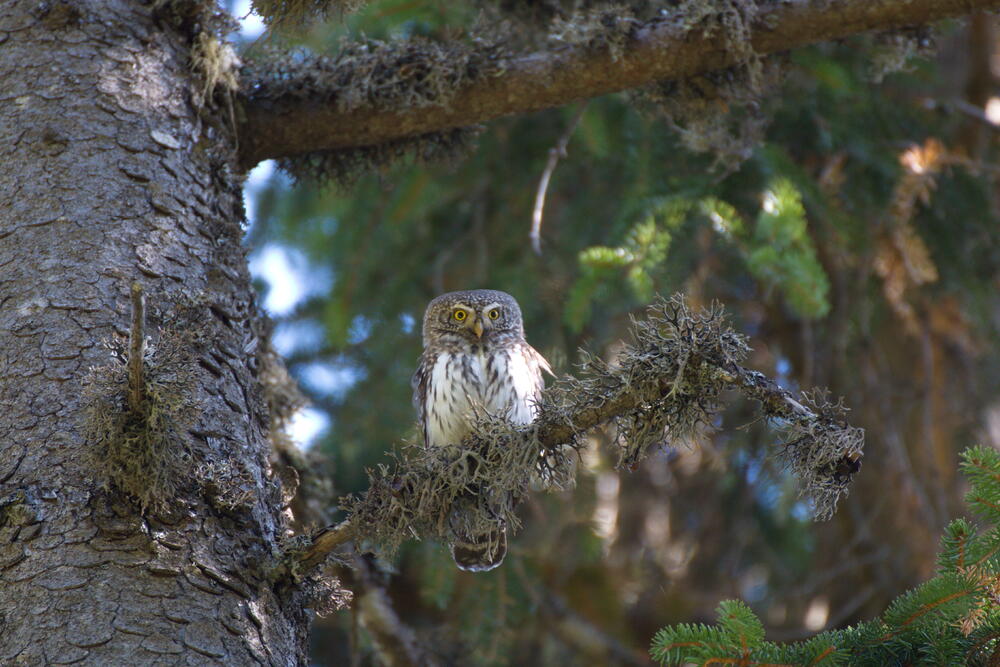
Dwarf Owl Photo: Marija Šoškić
Bird watching is one of the fastest growing branches of tourism, at least it was until the beginning of the new coronavirus pandemic.
In Montenegro, according to the CZIP and the Monticola Agency, this activity has only just gained momentum.
"One possible concern for us is that we started all our preparations just before the epidemiological crisis, so it may be that we will not be particularly successful. It is difficult to say what eco-tourism, of which our activity is part, will look like after the end of the pandemic. But so far it has been the fastest growing branch of tourism. Our activity is something that complements the classic very time-limited summer season, because its focus is on the period before and after the season - spring and autumn," says Bakić.
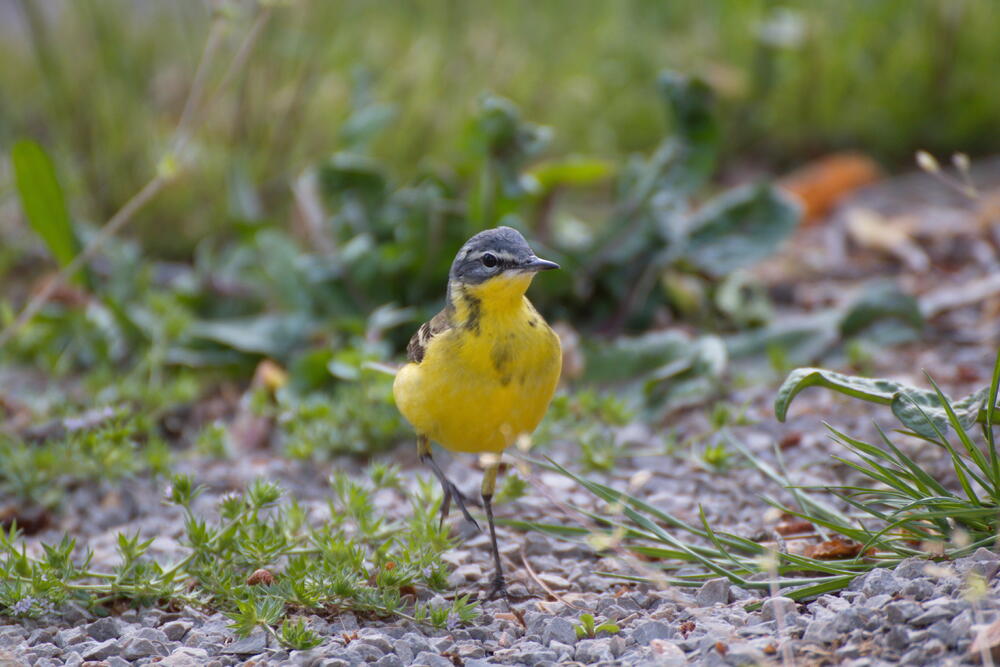
Yellow Wagtail Photo: Zoran Popović
So what can Montenegro offer birders? A lot, says Bakić, speaking to Vijesti.
"The advantage of Montenegro in the foreign market is our biological diversity. In a very small area we have exceptional dynamics of landscape, and thus habitats, and following on from that, species. In addition to this we should not forget the people, especially the villages, and the cultural and traditional heritage aspects of life here, being different and well-preserved in relation to the rest of Europe. Something that seems neglected to an ordinary person, is essentially untouched nature, as it should look in the whole of Europe, but unfortunately is not the case," says Bakić.
Montenegro following Slovenia?
In Montenegro, several areas of international importance for birds (IBA) have been singled out. Among them are Šasko Lake, Ulcinjska Solana, Skadar Lake, Biogradska Gora and Durmitor.
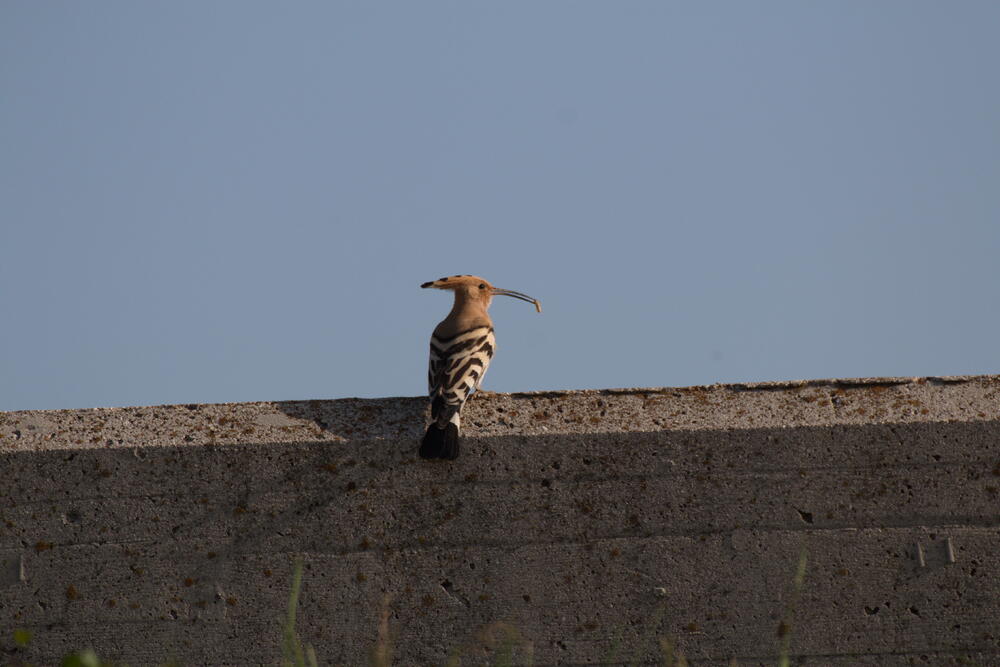
Hoopoe Photo: Marija Šoškić
Those areas were added to the IBA list before 2000, thanks at that time to ornithologists from Serbia. The CZIP, meanwhile, has identified at least 13 more potential IBA areas in the country, but these have not yet received official status.
"For the time being, we remain with the same number of official IBA areas. Birdlife International will be carrying out an audit soon and we will be contributing to this based on the knowledge we have gained through our research over the years. A lot of work has also been done through research for potential Natura 2000 sites, where areas of special protection have been recorded and proposed, and where 55 percent of the territory meets the criteria for protection. For now, only one other European country has such a high percentage of its area protected - Slovenia, which is considered the green capital of Europe," CZIP states.
According to the latest census, 349 bird species have been registered in Montenegro so far. Zeković says that four new species have been recorded, and that it is natural for numbers to increase, because ornithologists are increasingly present in the field.
And here, he adds, in addition to research, bird watchers also play a big role.
"They record and enter data and confirm that more 'eyes on the ground' means more opportunities to find something new and interesting," says Zeković. He also explains that the richness of the bird fauna of a country is observed and confirmed through the total number of registered species or, more often, the number of nesting species. As many as 213 species of birds nest in Montenegro.
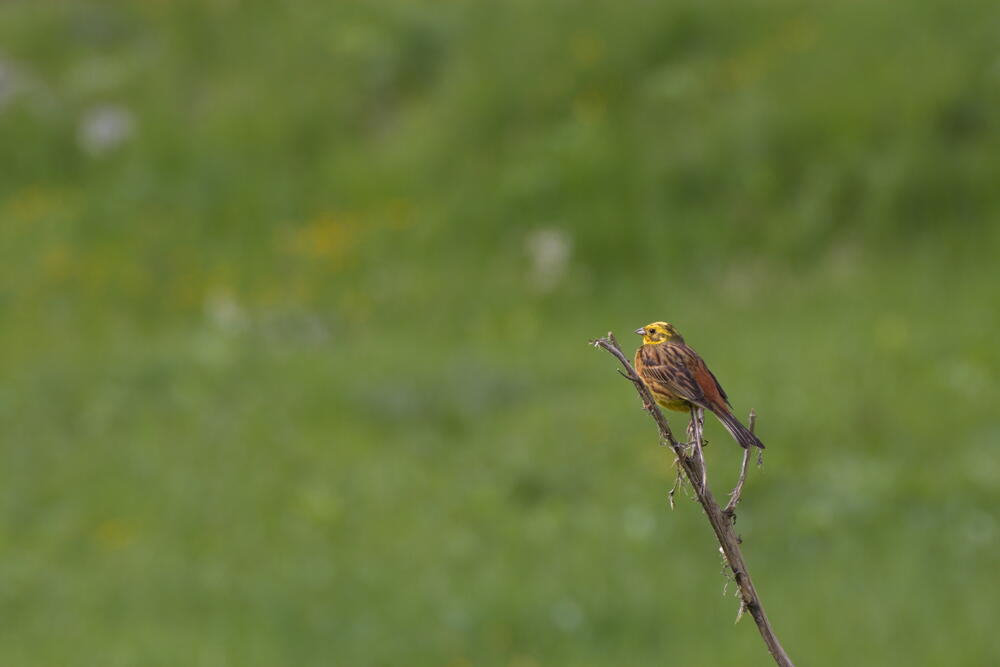
Yellowhammer Photo: Marija Šoškić
Zeković explains that this nest density index in Montenegro is significantly above the Balkan average; the Balkan average is 0.435, while the nest density index in Montenegro is 0.562.
"This is due to the diversity of habitats - from the coast, through salt pans, freshwater lakes, semi-steppes, canyons, dense forests, mountain plateaus and high mountain peaks. On the other hand, it is also due to the fact that Montenegro is located on one of the four most important bird corridors in Europe - the Adriatic Migration Corridor (Adriatic Flyway), through which millions of birds migrate to and from Africa every year," he said.
The State not recognizing potential
He adds that, compared to other European countries, 213 species nesting in Montenegro is a relatively high number, if we take into account that Montenegro is one of the smallest European countries.
"For example, Montenegro is 39th in terms of area, while in terms of the number of nesting birds it is in 23rd place, just below Hungary, which is almost seven times bigger than Montenegro. Also, there are more nesting birds in Montenegro than there are Great Britain, the Czech Republic, Portugal, Denmark, Slovenia or Switzerland," says Zeković.
When it comes to birds, the statistics look good for Montenegro. However, the state has not yet tapped the potential of bird watching as a branch of eco-tourism.
"This type of tourism has been totally neglected, especially bearing in mind the potential it has. In previous years, tours were led by foreign guides who, by coincidence, or borne simply out of desire and love, knew our country very well. The first bird watchers therefore came with foreign agencies, and foreign guides. CZIP has previously held workshops for guides and locals on this topic, either working with other organizations or independently, under its own auspices," says Bakić.
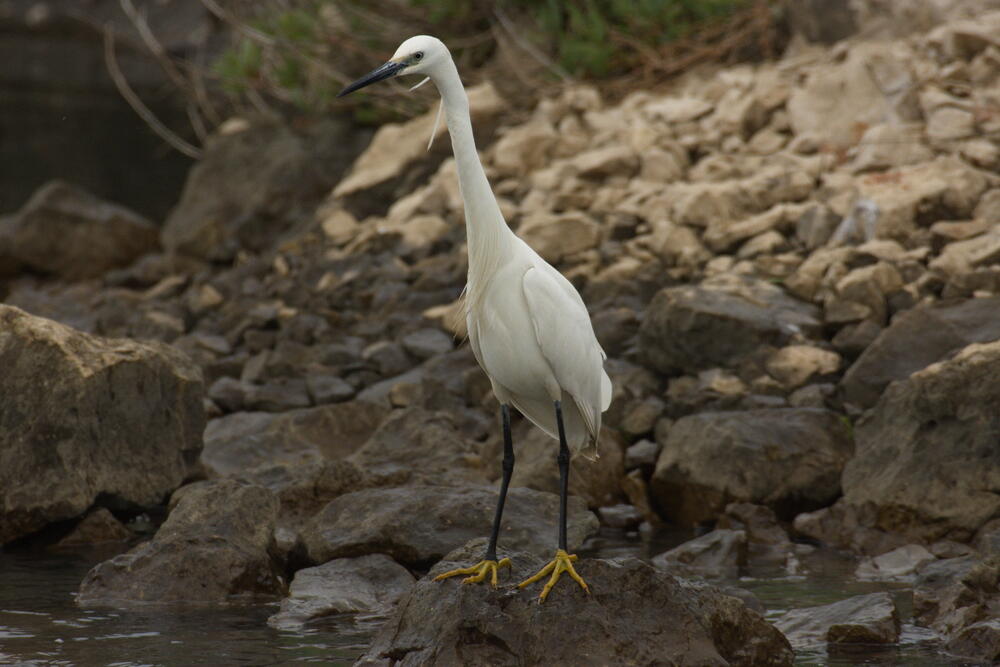
Little Egret Photo: Marija Šoškić
Monticola organizes bird watching on Lake Skadar, on the territory of the Prokletije National Park and Ulcinj Saltworks.
The original tour prices have now been adjusted, but are still high, given domestic circumstances.
A visit to Lake Skadar costs 1,100 euros, or 900 euros with the reduction. Bird watching in the north - on Durmitor, Biogradska Gora and Prokletije, cost 1,500 or now 1,200 euros, with the discount. "In the beginning, our focus was entirely on the foreign market, with two thematic tours that cover the north and the south.
This is especially due to the fact that these two tours cover different species, habitat types and climatic conditions.
Someone who comes from Finland will not want to spend a vacation in the forest and mountains, but on the coast, observing species that they cannot see in their own country.
The same goes for visitors from Mediterranean countries who will appreciate the three-toed woodpecker more than the flamingos from the Ulcinj saltworks.
This means that each in addition, each package must be adapted not only to the country from which the visitor comes, but also to his or her interests - being simply a nature lover or a so-called “twitcher”, a person who has a list of species he wants to see during his stay, which is not so easy with birds, because they are unpredictable, explains Bakić.
For CZIP and the Monticola Agency, the Western European market is crucial.
"Western Europe is the key inbound market for us; these are countries that have a highly-developed culture of bird watching, for example in Great Britain and the Netherlands. The situation with the current pandemic has, of course, had a very negative effect on our business, as is the case all over the world, but we are adapting, monitoring the situation and hoping that there is a future for our business. In the coming period, trips of smaller groups in search of a vacation surrounded by nature will become more and more popular, and that is exactly what we offer," says Bakić.
They say that they are certainly considering bird watching options for the local population and add that the goal is to continue with activities in what is the primary job of CZIP - nature protection based on research.
Speaking to Vijesti, they explain that while they are observing birds with the visitors, they are not limited to just that during the tour.
"A successful and experienced guide will introduce you to all the important plants and butterflies you see, mammals whose tracks you come across, they will provide information about conservation of the habitat, its function, threats and its beauty. In addition, bird watching is not a luxury form of tourism, which means that it brings together nature lovers who want to support the local population through traditional accommodation, local cuisine, local products and contact with people living in areas that are important for the survival of certain species," say Bakić and Zeković.
A vital connection
Bird watching in Montenegro has so far only been organized by Lake Skadar National Park. Now CZIP is also offering packages, and bird watching on Ćemovsko Polje has also been announced.
CZIP says that it is vital for everyone who offers similar services to connect. "Bird watching is a relatively new tourist activity in Montenegro, and we must connect all stakeholders - national and local tourism organizations, national parks, those who offer accommodation, guides, all this in order to promote Montenegro as an interesting new market for this type of tourism. We have already taken some steps in that direction towards connecting, and we are especially glad that there are some similar initiatives with tourism organizations recognizing that bird watching can significantly enrich what their municipalities can offer tourists," stated CZIP.
A few years ago, CZIP trained several guides in bird watching at Ulcinj Saltworks.
“The intention was to involve the local population and provide a source of income for young people from Ulcinj. Despite the good will, the project did not come to fruition at that time because there were problems accessing Solana. Those obstacles have now been removed, so we hope that after the end of the epidemic we will still be able to build on the capacities we discovered within the young talented people in Ulcinj, who would certainly do the job with love and pride," the NGO states.
All proceeds to go towards nature protection
CZIP points out that all revenue generated by providing services through a travel agency will be reinvested in the work of NGOs.
"More precisely, the income goes directly into nature protection. CZIP has been organizing volunteer tours for years, so we wanted to use this experience to respond to the requests of those who wanted to hire us and thus support our work and mission, but could not do so due to legal restrictions. Providing tourist services doesn’t just mean managing tours, but also implies responsibility for clients, primarily their safety and well-being, and then also the provision of quality, which is ensured by legal provisions. In that sense, we aim to respond to the requirements of the state, so that our tours, unlike many in the region, are led by ornithologists who additionally and importantly have a tourist guide's license," said Bakić.
An online store is also available on the Monticola website. On monticola.me, those interested can find souvenirs, bags, t-shirts, posters and many other items with bird motifs.
"All the products can be bought directly from the agency's website in order to be able to pay the necessary taxes, but all the revenue that Monticola makes through its business - organizing tours or through web shops - goes to nature protection programmes implemented by CZIP," the organization states.
HRB








